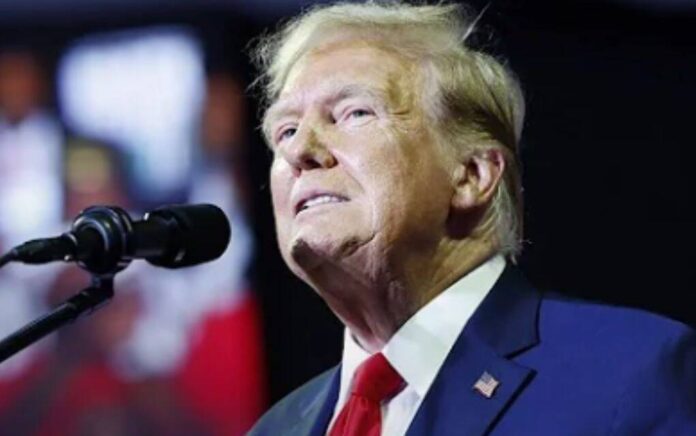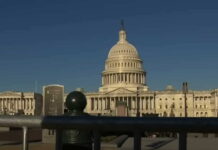
Trump is set to take office in a couple months. But a lot could go wrong.
And now a top lawyer has given Donald Trump nail-biting legal news.
President-elect Donald Trump’s New York criminal case has taken an unexpected turn as Judge Juan Merchan granted a joint request to pause all deadlines, including sentencing, until November 19. This development has sparked discussions among legal experts about the potential implications for Trump’s legal strategy and political future.
Jonathan Turley, a law professor at George Washington University, argued that a prompt sentencing would actually benefit Trump. Speaking on “Outnumbered,” Turley explained, “This case was lawfare. It should not have been brought. To this day, we don’t know exactly what the president was convicted of. But it’s going to take a while to be able to rectify that.”
Turley emphasized that an immediate sentencing would provide Trump with grounds for appeal, whereas suspending the case would deny him this option. He stated, “The president can’t get to that review until the judge lets go of the case and actually sentences him.” While acknowledging the political ramifications of a formal conviction, Turley suggested that finality in the case could work to Trump’s advantage.
In contrast, MSNBC legal correspondent Lisa Rubin offered a different perspective. She predicted that Judge Merchan would likely uphold Trump’s conviction but refrain from imposing a prison sentence. Rubin speculated, “Where I see this going is perhaps toward a solution where the conviction stands, but there is no sentencing and both parties agree that either Trump should be sentenced to time served or solely to probation and that no sentencing hearing is necessary or appropriate.”
The unprecedented nature of the situation has not been lost on the legal teams involved. Prosecutor Matthew Colangelo acknowledged the unique circumstances in a recent email to Judge Merchan, stating, “The People agree that these are unprecedented circumstances and that the arguments raised by defense counsel in correspondence to the People on Friday require careful consideration.”
Trump’s defense team has joined the request for a pause in proceedings, arguing for the case’s dismissal to “avoid unconstitutional impediments to President Trump’s ability to govern.” This move underscores the complex interplay between Trump’s legal challenges and his impending return to the presidency.
As the legal drama unfolds, the nation watches closely to see how this case will impact Trump’s presidency and the broader political landscape. The outcome of this case could set significant precedents for the treatment of sitting and former presidents in the criminal justice system.
What Happens if a President-Elect Is Sentenced Before Inauguration?
In the United States, the prospect of a President-elect facing criminal conviction before taking office is a scenario that would raise complex legal and constitutional questions. While no president-elect has ever been sentenced for a conviction before inauguration, there are several constitutional principles and legal processes that would govern such a situation.
The U.S. Constitution does not explicitly address the scenario of a President-elect facing criminal conviction, but several key provisions could come into play. The 20th Amendment sets the inauguration date for January 20th, at which point the President-elect assumes office. The amendment does not provide for any contingencies regarding criminal convictions, and thus the legal process of assuming office would continue unless the individual was disqualified in some other way.
The Constitution sets basic eligibility requirements for the presidency—being at least 35 years old, a natural-born citizen, and having lived in the U.S. for at least 14 years. A criminal conviction is not inherently a disqualifier for office unless it results in the individual being disqualified under other legal provisions.
Be sure to stay right here on The Federalist Wire for breaking news about the incoming Donald Trump administration.



















